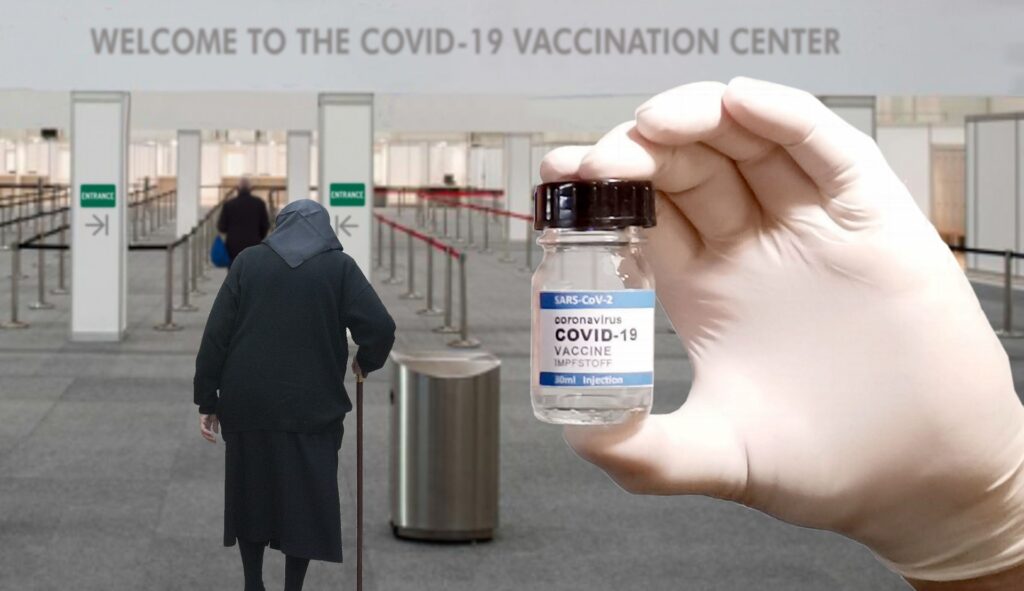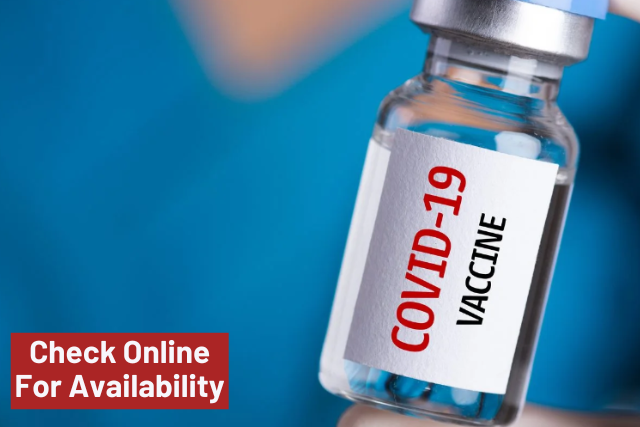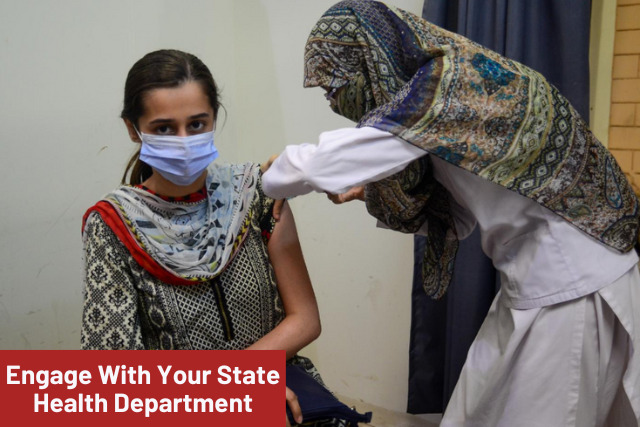
With the COVID-19 vaccine rollout steadily increasing nationwide, seniors are now eligible to get their shot. If you’re 65 and over, you are considered a high priority for the vaccine due to your vulnerability, with roughly 80% of COVID-19 deaths attributed to people from this age group.
You should be first in line, but with logistics and availability presenting issues, understandable frustration will set in until you’ve gotten your required doses. Here are some ways you can make sure you get the COVID-19 vaccine and ensure you get the protection you need at the soonest possible time.
COVID-19 Vaccine
Check Online For Availability

Never has Google been more of a friend than it is now, with a lot of information about COVID-19 and all the different vaccines on offer. Now, when you put search terms such as ‘vaccine availability’ or ‘where can I get my vaccine?’ you can find locations near you where vaccinations are available.
Increasingly, search engines are displaying state and regional vaccine distribution information, with Google Maps also showing areas closest to you that offer it.
Google’s CEO, Sundar Pichai, relayed in January that vaccine locations would become available through their search engine and their Maps application, starting with states like Arizona, Texas, and Louisiana before rolling out nationwide.
When you search online, or a family member searches for you, Google will provide details on whether or not you need a referral or to book an appointment. You’ll also find out if access is limited or what type of location (drive-through or walk-in) it is. Enlist the help of family members or caregivers where you need to.
Engage With Your State Health Department

This is a smart play considering that different states are distributing their vaccines as they see fit. Some distribute it via local pharmacies or hospitals, which may make it easier for you to access. Others are supplying their COVID vaccines via the National Guard or are doing a combination of both.
For more specific information, you can check out the CDC website and call your state’s health department to get vaccination details. You can also sign-up for the CDC V-Safe site, which will help you keep track of any side effects from the vaccine.
Talk To Your Family Doctor Or Specialist
You should also have a conversation and make checks to your doctor or specialist, as he or she could provide you with further details about vaccination sites, scheduling, and recommend how long you should wait after taking the first vaccine dose for a two-dose vaccine.
Some places will require you to provide a referral from your doctor to get vaccinated. Additionally, you should have a thorough discussion with your medical care professional about the risks involved with each potential vaccine option and which one is the safest for you to take, especially if you have an underlying or chronic medical condition.
Also, Keep In Contact With Your Pharmacist And Retailers
Having a pharmacist or local retailer near you distributing the vaccine makes traveling to get it less of a hassle while easing the burden in terms of familiarity. It’s easier to get a vaccine when you’re familiar with whom you get it from.
Some states like New York have pharmacies such as Walgreens and CVS distributing vaccines, offering information about availability and scheduling.
You’ll also find Walmart branches offering the COVID-19 vaccine, as well as grocery stores such as Giant and Safeway. Being able to access the vaccine in your community or region can be a big relief, as long as it’s available to get.
Check On Waiting Lists
On the subject of availability, because of very high demand and inconsistent scheduling in some areas, getting yourself in line for a vaccine requires quite a bit of patience and persistence over time.
It also doesn’t help that some vaccines, such as Pfizer and Moderna, have a limited shelf life, leading to some of the vaccines being dumped once people fail to show up for appointments.
As a result, some vaccination centers have set up waiting lists so that if you or an eligible loved one are still waiting to book a spot, you can access those lists. Once a spot becomes available, you’ll get called at short notice to come in and take the vaccine.
In the meantime, continue to practice the necessary protocols using the effective mask to be safe and in good health by the time you’re able to get the shot.
Other Recommendations
If the information you’re getting from those sources doesn’t provide you with enough information, one place to get in touch with is FEMA, which has been enlisted by the Biden administration to set up vaccination hubs nationwide.
Close to 500 community vaccination centers have been established or enhanced by FEMA as of February 2021. They can provide you with details on which sites you can go to as well as availability.
If you’re in a local assisted living facility and need the soonest recourse on when you can get a COVID-19 vaccine, resources with vaccine clinic dates provide lots of detail, including available times, phases of vaccine administration, and more.
Final Thought
In conclusion, seniors can take several steps to ensure they receive the COVID-19 vaccine and protect themselves during the ongoing pandemic. It is crucial for seniors to stay informed about vaccine availability and eligibility criteria through reliable sources such as government health agencies and healthcare providers. They can reach out to their healthcare providers to discuss their eligibility and receive guidance on scheduling vaccine appointments.
Also Read
- lifetime-fitness-membership-prices-locations
- membership-levels-at-lifetime-fitness
- everything-you-need-to-know-about-la-fitness
- 40 Junk Food List | Healthy And Unhealthy Food
- Lifetime Onyx Membership: What Is It- Advantage & Price
- What is Ursolic acid? Benefits, Side effects and Supplements
- 4-factors-to-consider-when-planning-meals
- Benefits-of-biotin
- Keto-diet-advantages-and-disadvantages
- What Makes You Loopy After Wisdom Teeth Removal
FAQs
How can seniors determine their eligibility for the COVID-19 vaccine?
Seniors can consult their healthcare providers or check the guidelines provided by local health departments and government health agencies to determine their eligibility for the COVID-19 vaccine.
What should seniors do if they are eligible for the vaccine?
Seniors who are eligible for the vaccine should proactively schedule appointments through local health departments, pharmacies, or vaccine distribution sites. They should closely monitor appointment availability and be prepared to act quickly.
What if seniors need assistance with the vaccine registration process?
Seniors can seek help from family members, friends, or community organizations to navigate the vaccine registration process. Many areas have dedicated helplines or volunteer services to assist seniors in accessing the vaccine.
Are there transportation options available for seniors to reach vaccine centers?
Seniors can explore transportation options such as public transit, community transportation services, or arranging rides with family or friends to ensure they can travel to vaccine centers comfortably and safely.
Should seniors continue following safety measures after receiving the COVID-19 vaccine?
Yes, it is important for seniors to continue following public health guidelines even after receiving the COVID-19 vaccine. This includes wearing masks, practicing social distancing, and maintaining proper hand hygiene to further reduce the risk of COVID-19 transmission.
